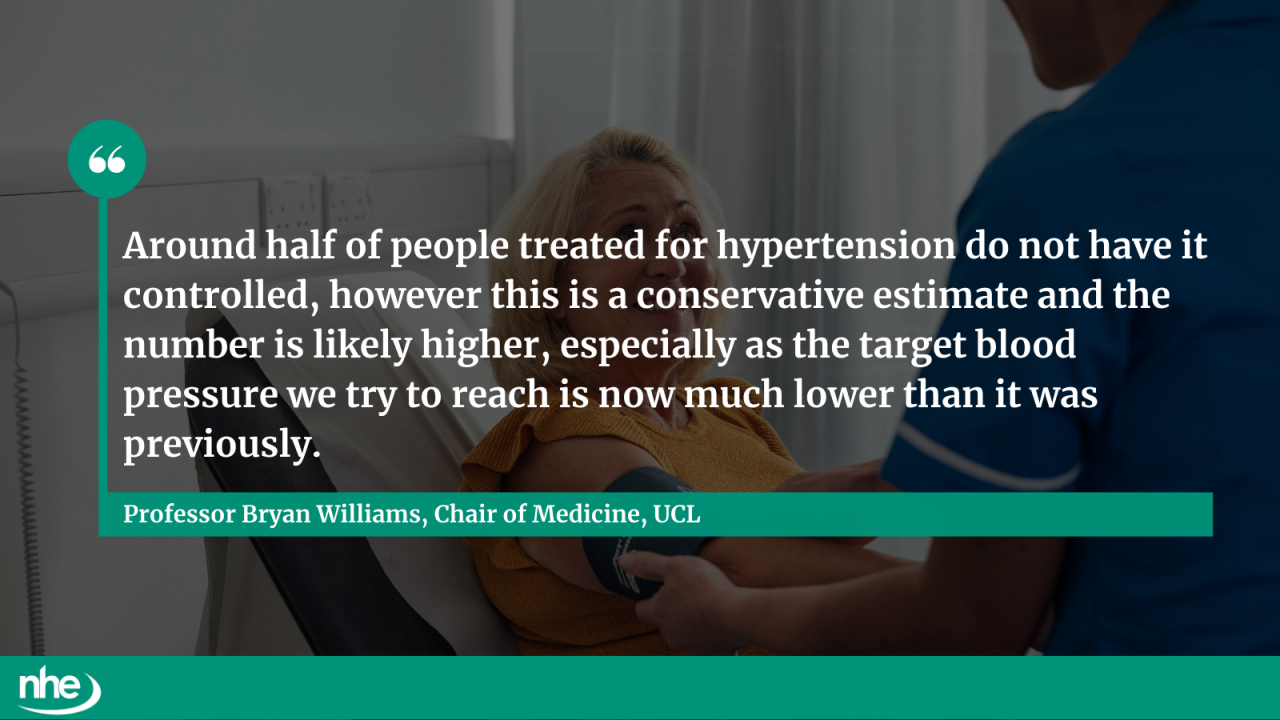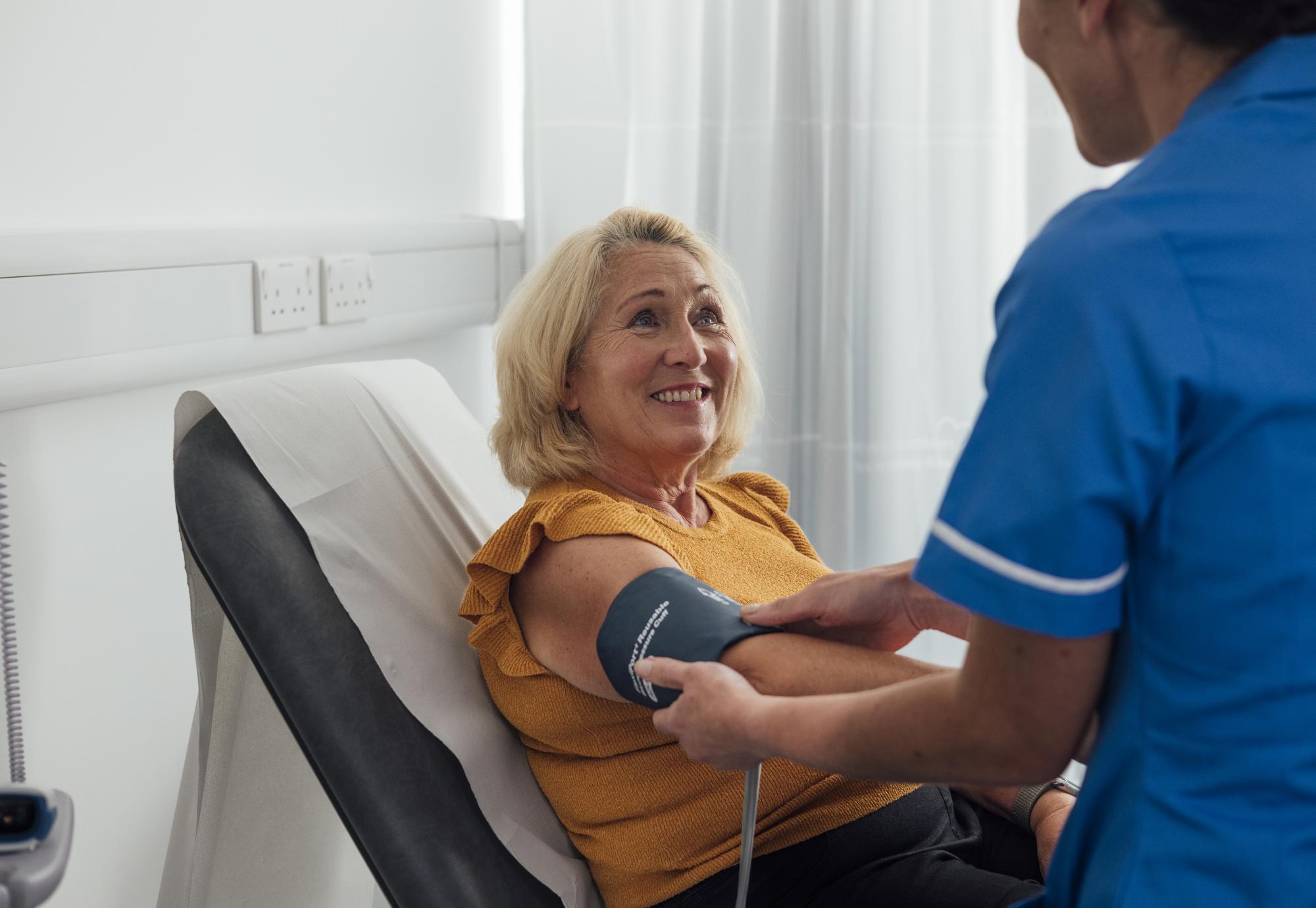A groundbreaking Phase III clinical trial has revealed that a new drug, baxdrostat, can significantly lower blood pressure in patients whose hypertension remains dangerously high despite taking multiple existing medications.
The trial, supported by the NIHR and led by Professor Bryan Williams at the UCL Institute of Cardiovascular Science, involved nearly 800 patients across 214 clinics worldwide. Sponsored by AstraZeneca, the trial’s results were presented at the European Society of Cardiology Congress 2025 in Madrid and published in the New England Journal of Medicine.
After 12 weeks of treatment, patients taking baxdrostat (1 mg or 2 mg daily) saw their blood pressure drop by 9–10 mmHg more than placebo, a reduction large enough to significantly lower cardiovascular risk. Notably, 40% of patients on baxdrostat reached healthy blood pressure levels, compared to fewer than 20% on placebo.
The drug works by blocking aldosterone production, a hormone that regulates salt and water balance in the body. Excess aldosterone causes the body to retain salt and water, pushing blood pressure up and making it difficult to control.
Professor Williams, UCL’s Chair of Medicine, commented:
“These findings are an important advance in treatment and in our understanding of the cause of difficult to control blood pressure.
“Around half of people treated for hypertension do not have it controlled, however this is a conservative estimate and the number is likely higher, especially as the target blood pressure we try to reach is now much lower than it was previously.
“In patients with uncontrolled or resistant hypertension, the addition of baxdrostat 1mg or 2mg once daily to background antihypertensive therapy led to clinically meaningful reductions in systolic blood pressure, which persisted up to 32 weeks with no unanticipated safety findings.
“This suggests that aldosterone is playing an important role in causing difficult to control blood pressure in millions of patients and offers hope for more effective treatment in the future.”

Hypertension affects 1.3 billion people globally, with 14 million in the UK alone. Around half of all cases are uncontrolled or resistant to treatment, increasing the risk of heart attack, stroke, kidney disease, and early death.
While historically more prevalent in Western countries, hypertension is now most common in Eastern and lower-income nations, with over 400 million cases in China and India alone. The development of baxdrostat could offer a lifeline to millions worldwide.
Image credit: iStock



















